She Loves You (Yeah, Yeah, Yeah) Read online
PENGUIN WORKSHOP
Penguin Young Readers Group
An Imprint of Penguin Random House LLC
Penguin supports copyright. Copyright fuels creativity, encourages diverse voices, promotes free speech, and creates a vibrant culture. Thank you for buying an authorized edition of this book and for complying with copyright laws by not reproducing, scanning, or distributing any part of it in any form without permission. You are supporting writers and allowing Penguin to continue to publish books for every reader.
Text copyright © 2018 by Ann Hood. All rights reserved.
Published by Penguin Workshop, an imprint of Penguin Random House LLC, 345 Hudson Street, New York, New York 10014. PENGUIN and PENGUIN WORKSHOP are trademarks of Penguin Books Ltd, and the W colophon is a trademark of Penguin Random House LLC..
Library of Congress Cataloging-in-Publication Data is available.
Ebook ISBN 9781524785130
Version_1
For Paul,
Of course
Contents
Title Page
Copyright
Dedication
Prologue
CHAPTER ONE: Yesterday
CHAPTER TWO: A Hard Day’s Night
CHAPTER THREE: All My Loving
CHAPTER FOUR: From Me to You
CHAPTER FIVE: Ticket to Ride
CHAPTER SIX: Can’t Buy Me Love
CHAPTER SEVEN: Baby, You Can Drive My Car
CHAPTER EIGHT: Girl
CHAPTER NINE: Day Tripper
CHAPTER TEN: Help!
CHAPTER ELEVEN: Please Mister Postman
CHAPTER TWELVE: Paperback Writer
CHAPTER THIRTEEN: I Feel Fine
CHAPTER FOURTEEN: Please Please Me
CHAPTER FIFTEEN: Love Me Do
CHAPTER SIXTEEN: Michelle
CHAPTER SEVENTEEN: We Can Work It Out
CHAPTER EIGHTEEN: Nowhere Man
CHAPTER NINETEEN: You’ve Got to Hide Your Love Away
CHAPTER TWENTY: Till There Was You
CHAPTER TWENTY-ONE: In My Life
CHAPTER TWENTY-TWO: She Loves You (Yeah, Yeah, Yeah)
Prologue
Here are things that have made me excited:
The day I found a sand dollar on the beach, all perfect and fragile and white. I was three or four years old and digging in the sand with my little red shovel. I used to love to build sand castles, and I would sit on my yellow-and-white-striped beach blanket and dig, dropping all that sand into my blue pail. Mom and I liked doing the drip technique when we built sand castles, which was to fill paper cups with water and drizzle the water over the castles to make turrets and towers. And this one day, my shovel hit something hard, so I put it down and started using my fingers instead, and I uncovered the sand dollar. I had never seen one before, but somehow I knew it was a rare and special thing. So special that I didn’t even pick it up right away. I just stared down at it resting in the smooth sand. My heart was beating hard and my mouth went dry and carefully I picked it up and held it, all warm and delicate, in the palm of my hand.
On the first day of first grade the teacher, Mrs. Kenney, made us come up to the board one by one and write our names. I sat in my little chair at my little desk, nervous that somehow I would do it wrong. I knew how to write my name. Well, print it in big block letters. TRUDY MIXER. I liked the mountains of the M and the sword swipe of the X and the tricky forked Y. But I’d never written it in front of so many people, on a blackboard. Poor Gwendolyn Zamborini was standing up there writing her name and it had so many letters and it was taking up so much space that she started to cry and had to sit back down. Doris Fish didn’t know how to write anything except the D, and she made it backward and stomped back to her seat, defiant. Robert Flick cried, too, because he was confused about his name—it was of course Robert, but everybody except Mrs. Kenney called him Bobby, and that was what he knew how to write. Then it was my turn, after so many mistakes and failures. I was wearing a navy-blue jumper with two pockets shaped like gray kitten heads on the front and a navy-blue pucker shirt and red knee socks and brand-new shoes with red laces. And I walked up to that blackboard, holding my breath the entire way. The chalk felt heavy in my hand when I lifted it to write that T and then the R and then I was writing all of it, not too big and not too small, and excitement rose up in me, I swear I could feel it filling me so much I almost thought it might lift me up like a balloon.
Also first grade. We were handed books with a picture on the front of a little girl and a little boy and a spotted dog all looking over a white picket fence. These, Mrs. Kenney told us, were our reading books. The boy was named Dick and the girl was named Jane and the dog was named Spot and the book was called We Look and See. Days and days went by with Mrs. Kenney making us learn the vowels and the sounds the different letters made. What does this have to do with reading? I thought as I dutifully drew a ladder and put a, e, i, o, u on each rung, dangling y off the top. And then one day, I remember how the trees outside the window were in full autumn splendor, the leaves scarlet and golden and orange, I was staring at We Look and See and somehow I knew—I knew—that the words said: Look, Jane. Look, Dick. See funny Sally. Funny, funny Sally. I was reading! Reading! I started to shout, “Mrs. Kenney! Mrs. Kenney! I can read!”
“Do you want to be my best friend?” Michelle whispered to me during recess one morning in second grade. Michelle had long blond hair and big blue eyes, and she knew things like all the state birds (Colorado: lark bunting; Ohio: cardinal; Delaware: blue hen chicken) and the names of the presidents in order (George Washington, John Adams, Thomas Jefferson, James Madison, all the way to our president, John F. Kennedy) and the birthstone for every month (December, zircon, mine; June, pearl, hers). I knew things like that, too, but other things, like the astrological signs (Sagittarius, me; Gemini, her) and the state capitals (even the hard ones like Tallahassee, Florida, and Frankfort, Kentucky) and the Seven Wonders of the Ancient World (such as the Great Pyramid of Giza and the Hanging Gardens of Babylon). In other words, we were a perfect fit, Michelle and me. We both hated mushrooms—too slimy!—and put ketchup instead of mustard on our hot dogs and vinegar instead of ketchup on our french fries. We both liked the color purple best and turquoise second best. We were lunar twins, which meant our birthdays were exactly six months apart, and in fourth grade we would both have our golden birthdays, which was when your age—nine—was the same as your birth date—also nine! “Do you want to be my best friend?” Michelle whispered to me that day, and it was like when you put the last piece in a big puzzle and step back and see how perfect it is. “Yes,” I whispered back. And then we were.
February 9, 1964. My father and I watched the Beatles on The Ed Sullivan Show.
Today. I’m on a bus to Providence where I’ll get on another bus to Boston where I’ll take a subway to Suffolk Downs where I’ll see the Beatles. Live. In concert. I press my hand to my pocketbook where the tickets sit waiting and my excitement is so big that it overtakes all of the other most exciting moments of my life combined. I rest my forehead on the window and watch Rhode Island whizzing past me outside. Every single cell I have is full, like I’m expanding, filling, lifting, floating, flying.
CHAPTER ONE
Yesterday
On February 9, 1964—just two and a half years ago—the British Invasion began. That was the night the Beatles appeared for the first time on The Ed Sullivan Show. I had tonsillitis. My tonsils were ca
using me a lot of trouble that winter, and Doctor Cooper was considering taking them out, an idea I did not like at all. Getting your tonsils out meant going into the hospital and staying at least one night. It meant having ether, a sickeningly sweet-smelling drug that put you to sleep. This I knew from Rosemary Martindale, who had her tonsils out in second grade. “They put a mask over your nose and mouth and the ether starts pouring out and they tell you to count backward from one hundred and all you want to do is scream and rip that mask off but you can’t because of the ether,” she explained to the whole class when she came back to school two weeks later. “Then you wake up with the worst sore throat you’ve ever had because they’ve cut out your tonsils.” I ask you: Who would want to do this?
My neighbor Theresa Mazzoni, who went to Catholic school, came over that February afternoon. I was lying on the couch eating grape Popsicles and worrying about ether.
* * *
* * *
“Do you know what tonight is?” Theresa asked me.
“Sunday?” I croaked, because my throat was too sore for me to talk normally.
She rolled her eyes. “Not just any Sunday, Trudy,” she said. “Tonight the Beatles are going to be on The Ed Sullivan Show and your life is going to change forever.” She paused. “Everyone in America’s life is going to change forever,” she added.
I didn’t like how Theresa always knew more than I did. How did she find out this stuff? She was just a kid, like me, but somehow she knew things I didn’t know. One day she said to me, “Supercalifragilisticexpialidocious,” and I said, “What?” And she said it again, faster and all smug. I didn’t know what she was talking about, but I understood it was important and that in no time everyone else would be saying supercalifragilisticexpialidocious, too, and if I knew what was good for me I’d learn how to say it, too.
So I asked her, “What are the Beatles?”
“Not what, Trudy. Who.”
Theresa flopped on the chair across from me and raised four fingers. “John, Paul, George, and Ringo,” she said, counting each one off. “They’re from England. Liverpool,” she said dreamily. “I like John best,” she added.
I repeated the names in my head. John. Paul. George . . .
“Ringo?” I asked.
Theresa grinned. “Because he wears lots and lots of rings. He’s the drummer.”
Ah! So they were a musical group. Since it was Sunday, I knew that the Beatles were going to be on The Ed Sullivan Show, because that’s where musical groups appeared on Sunday nights.
“I’ll come over and watch with you if you want,” Theresa said.
I did.
* * *
* * *
My parents were skeptical.
“The Beatles?” Mom said, scrunching her face the way she did when something tasted bad. “Why the Beatles?”
“They’re in today’s New York Times,” Dad said, and he laid the newspaper out on the kitchen table.
Mom and I looked at the picture Dad was pointing to. In the background was a Pan Am plane and in front of it were four boys with shaggy hair: the Beatles. The caption said that three thousand fans waiting for them to arrive nearly caused a riot when they stepped off the plane and onto American soil.
“They need haircuts,” Mom said, scrunching her face even more.
Without even hearing one note of a Beatles song, I—like every girl in America—was already 100 percent smitten by them.
By the time Theresa showed up to watch The Ed Sullivan Show that night, Dad had read me the entire New York Times article and we’d listened to WPRO radio until “I Want to Hold Your Hand” came on, which was almost right away, because the song was already number one. In fact, the DJ dedicated fifteen whole minutes just to Beatles songs, playing “She Loves You,” “I Saw Her Standing There,” and “All My Loving” without interruption.
Dad was tapping his fingers on the table in time to the music. “Oh, Trudy,” he said, “these guys are good.”
“It’s not very melodic, is it?” Mom said. Mom liked Frank Sinatra.
Dad’s eyes met mine, and it was like he looked at me for the first time ever. No, like he saw me for the first time ever. We smiled at each other, two Beatles fans. Dad nodded, as if to say that we were in this together. I felt so happy, I almost forgot my sore throat.
“I like Paul best,” I announced when Theresa showed up.
“So do I,” Dad told her.
He scooped ice cream into bowls for us and set up the TV trays. Usually Mom did this stuff, but she wasn’t a Beatles fan. She didn’t understand.
Ed Sullivan announced, “Ladies and gentlemen, the Beatles,” and the girls in the audience screamed and cried.
Theresa screamed, too. I couldn’t, of course, because of my tonsils. But it didn’t even matter because there were the Beatles on the stage singing, and all I really wanted to do was sit there and watch them. I wanted them to never stop singing because somehow Theresa was right. The Beatles had arrived and everything changed.
Later, after the show was over and Theresa went home, Dad came and sat beside me on my bed.
“Last November we all lost hope, Trudy,” he said softly.
I knew what he meant. The November before, on November 22 to be exact, Lee Harvey Oswald had shot and killed President Kennedy, and the whole country went into mourning. Our principal, Mrs. Abbott, ran into our classroom sobbing and said, “Our beloved president has been shot,” and she told us all to go home. When I got home, my mother and Mrs. Mazzoni and all the other mothers from the neighborhood, except Mrs. Blaise because she worked as a nurse in the ER, were sitting in front of the TV, crying. That’s how I knew for sure it was true.
Dad took my hand. “But the Beatles are bringing joy back into our hearts,” he said, and he squeezed my hand. “I love you, yeah, yeah, yeah,” he whispered, and kissed me on the forehead.
“I love you, too, Dad,” I whispered back.
I closed my eyes, and the song played over and over in my mind, like a lullaby putting me to sleep.
* * *
* * *
The day I went back to school after my tonsils were healed, I stood up in class and announced the formation of the Beatles Fan Club.
“The first meeting is today, right after school,” I said. “The sign-up sheet will be outside the office.”
By lunchtime, fourteen kids had signed up. And I, Trudy Mixer, became the most popular girl at Robert E. Quinn Elementary.
CHAPTER TWO
A Hard Day’s Night
Two years later, and I was still the straight-A student and president of the Robert E. Quinn Junior High Beatles Fan Club. With twenty-three members, it was the most popular after-school club at Quinn. More popular even than Future Teachers (eleven members), Make America Beautiful (ten, which is shocking, because all they did was pick up litter), and Future Cheerleaders (nine). Then I came back from April vacation and everything changed.
Of course, everything always seemed to be changing in the outside world—like boys were growing their hair as long as girls, and people were protesting the war in Vietnam instead of, as Dad said, “just going to fight over there and protect democracy,” and everyone was complaining about President Johnson. But things on the inside world—my world—had been the same for as long as I could remember. I was president of the fan club. Michelle was my best friend. Teachers called me a natural-born leader and good citizen. But all of that changed when I walked into second period, social studies, on the first day back from vacation.
Instead of our teacher, Mr. Flora, there was a substitute teacher, a woman with short dark hair, cat glasses, a dress with a big curlicue P on the left side, and a sour face that stared out at us like we were Martians. On the board she had written her name: Mrs. Peabody. Apparently Mr. Flora had to have emergency surgery over the break and he would not be recovered enough to return to school. T
his Mrs. Peabody announced in a matter-of-fact way, but we all got very nervous.
“What kind of surgery?” Dennis Dannon asked.
“My mother had her appendix out but she got better in like three weeks,” Mary Beth Argo said.
Poor Mr. Flora! We were all really upset because he was one of our favorite teachers, a bald round man who wore bow ties.
“Is he going to die?” someone in the back of the room shouted, and we all gasped.
“Okay, people,” Mrs. Peabody said, “settle down.”
Settling down thirty-one sixth-graders took a very long time, so when I couldn’t catch Michelle’s eye, I sighed and stared out the window.
Outside, it looked like the world had just woken up after a long sleep. The trees were bursting with bright green buds, and the first daffodils had poked their heads out of the dirt. Staring out the window instead of at Mrs. Peabody, a Beatles song kind of drifted across my brain, which was typical, because unless I was doing math or reading a book or memorizing facts, I was usually thinking about the Beatles. On this particular day the song that I was hearing was “In My Life,” probably because the night before I’d played the album Rubber Soul about a million times waiting for Michelle to call me. Which she never did, I remembered, and the same feeling of unease that I had all last night rose up again. Come to think of it, I realized as I stared out at those trees, I’d only seen Michelle once over all of vacation, which was very weird.
I made myself think of “In My Life,” saying the words in my head, There are places I remember, all my life, though some have changed . . . And eventually my thoughts turned to Paul McCartney, all the way across the Atlantic Ocean in England, maybe writing a new song at this very moment.

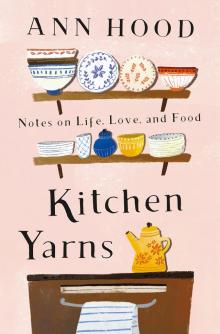 Kitchen Yarns
Kitchen Yarns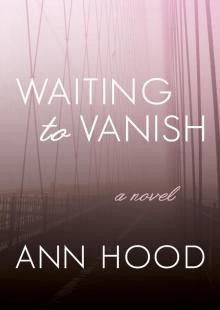 Waiting to Vanish
Waiting to Vanish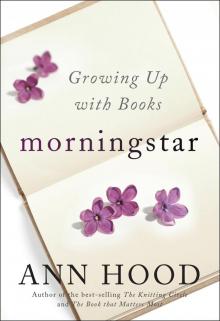 Morningstar
Morningstar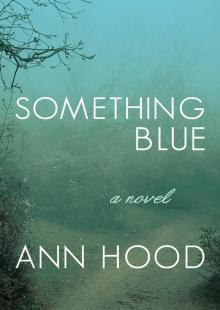 Something Blue
Something Blue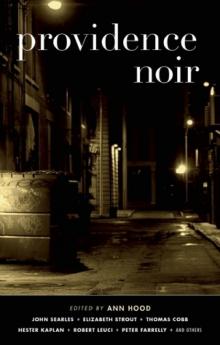 Providence Noir
Providence Noir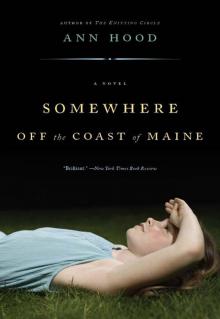 Somewhere Off the Coast of Maine
Somewhere Off the Coast of Maine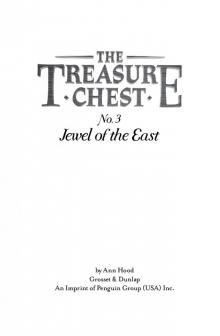 Jewel of the East
Jewel of the East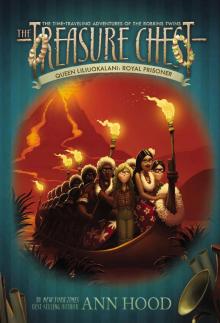 Queen Liliuokalani: Royal Prisoner
Queen Liliuokalani: Royal Prisoner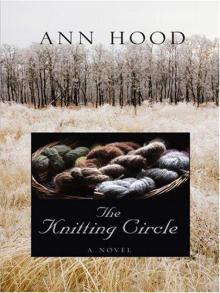 The Knitting Circle
The Knitting Circle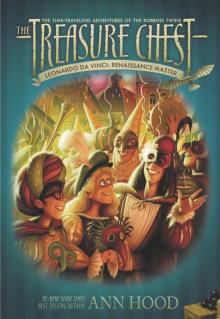 Leonardo da Vinci: Renaissance Master
Leonardo da Vinci: Renaissance Master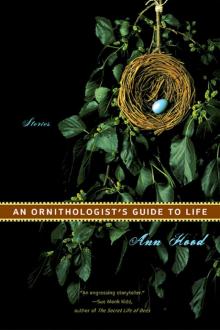 An Ornithologist's Guide to Life
An Ornithologist's Guide to Life The Red Thread
The Red Thread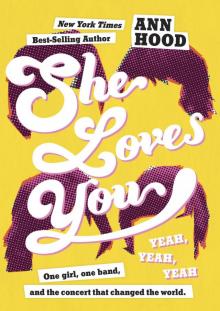 She Loves You (Yeah, Yeah, Yeah)
She Loves You (Yeah, Yeah, Yeah)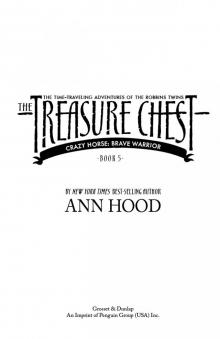 Brave Warrior
Brave Warrior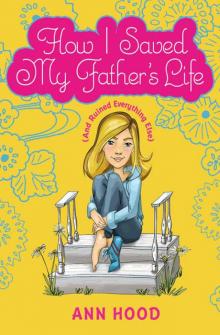 How I Saved My Father's Life (and Ruined Everything Else)
How I Saved My Father's Life (and Ruined Everything Else)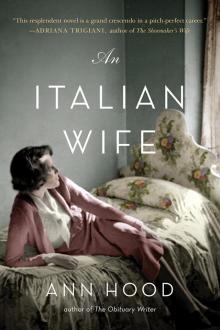 An Italian Wife
An Italian Wife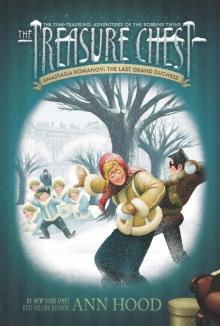 Anastasia Romanov: The Last Grand Duchess #10
Anastasia Romanov: The Last Grand Duchess #10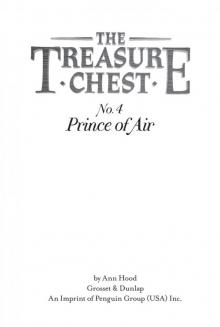 Prince of Air
Prince of Air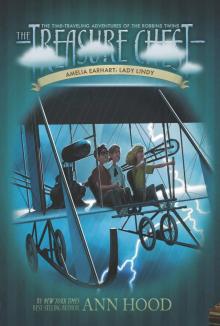 Amelia Earhart: Lady Lindy
Amelia Earhart: Lady Lindy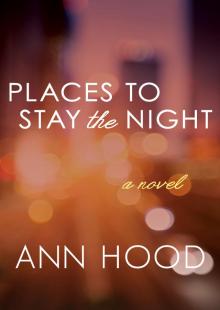 Places to Stay the Night
Places to Stay the Night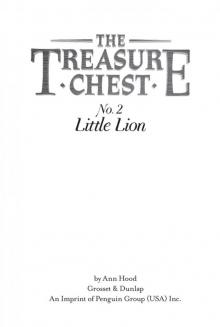 Little Lion
Little Lion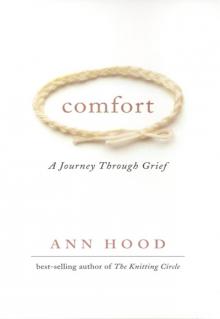 Comfort
Comfort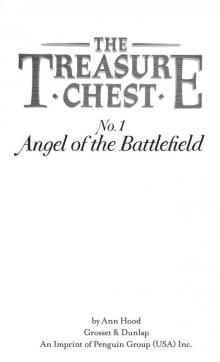 Angel of the Battlefield
Angel of the Battlefield